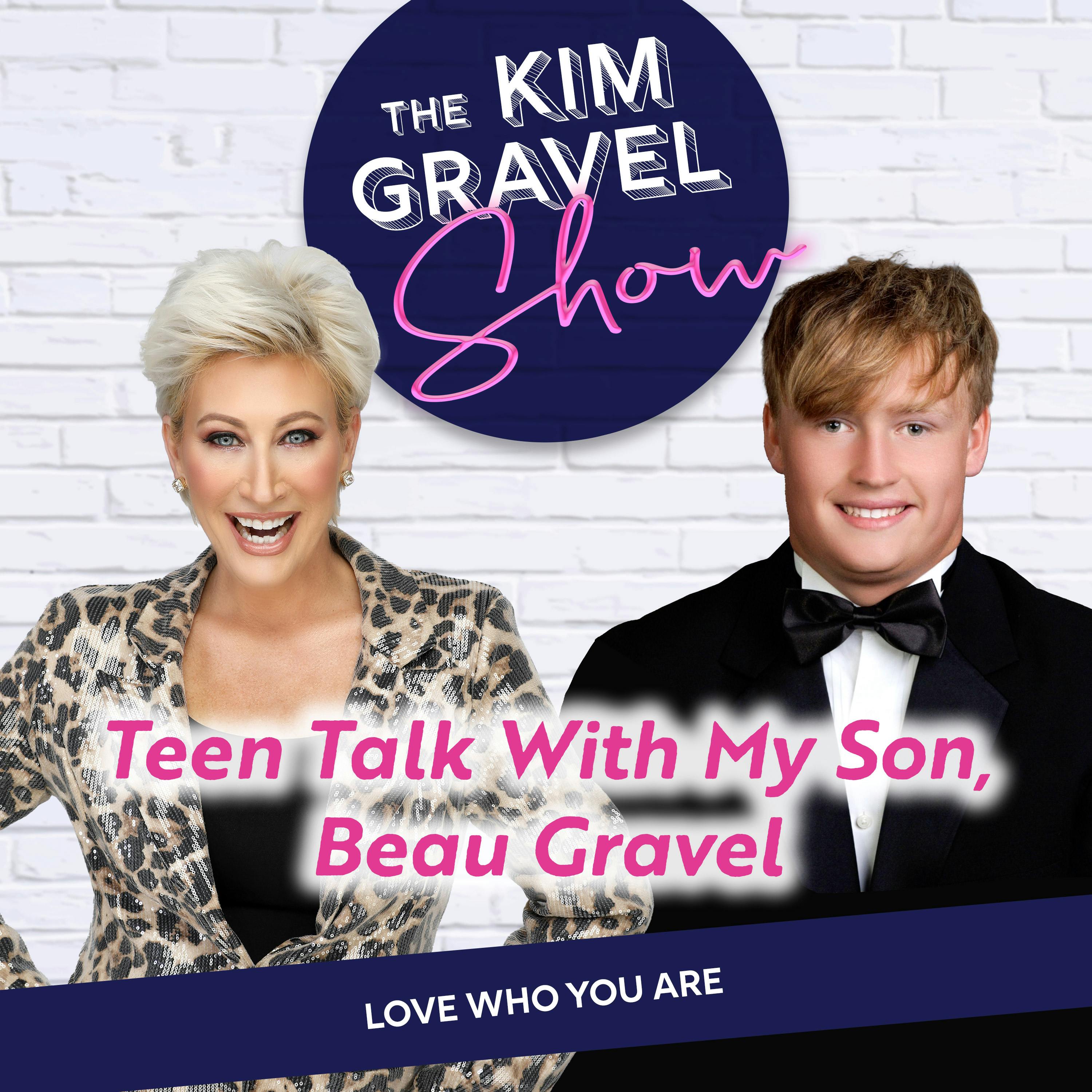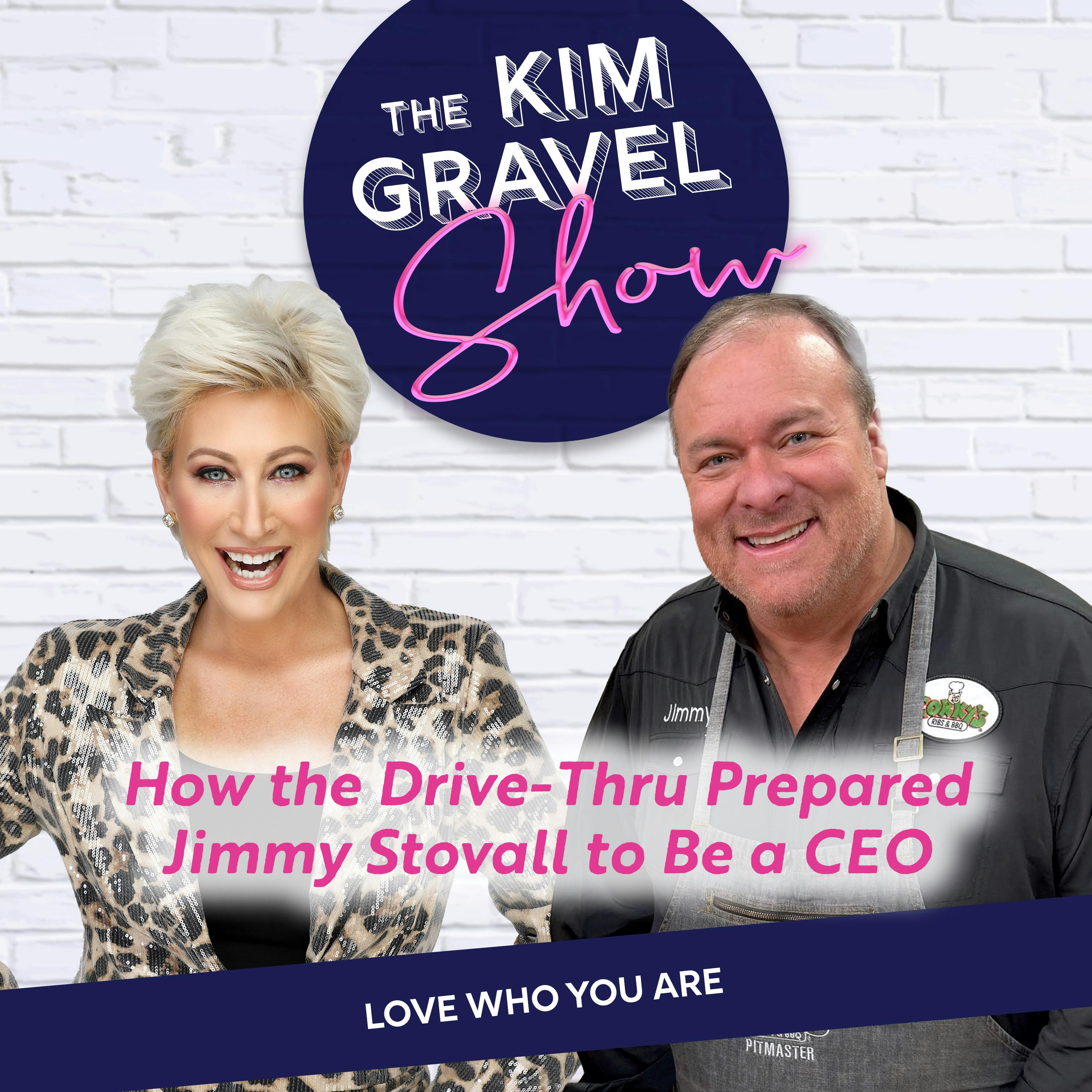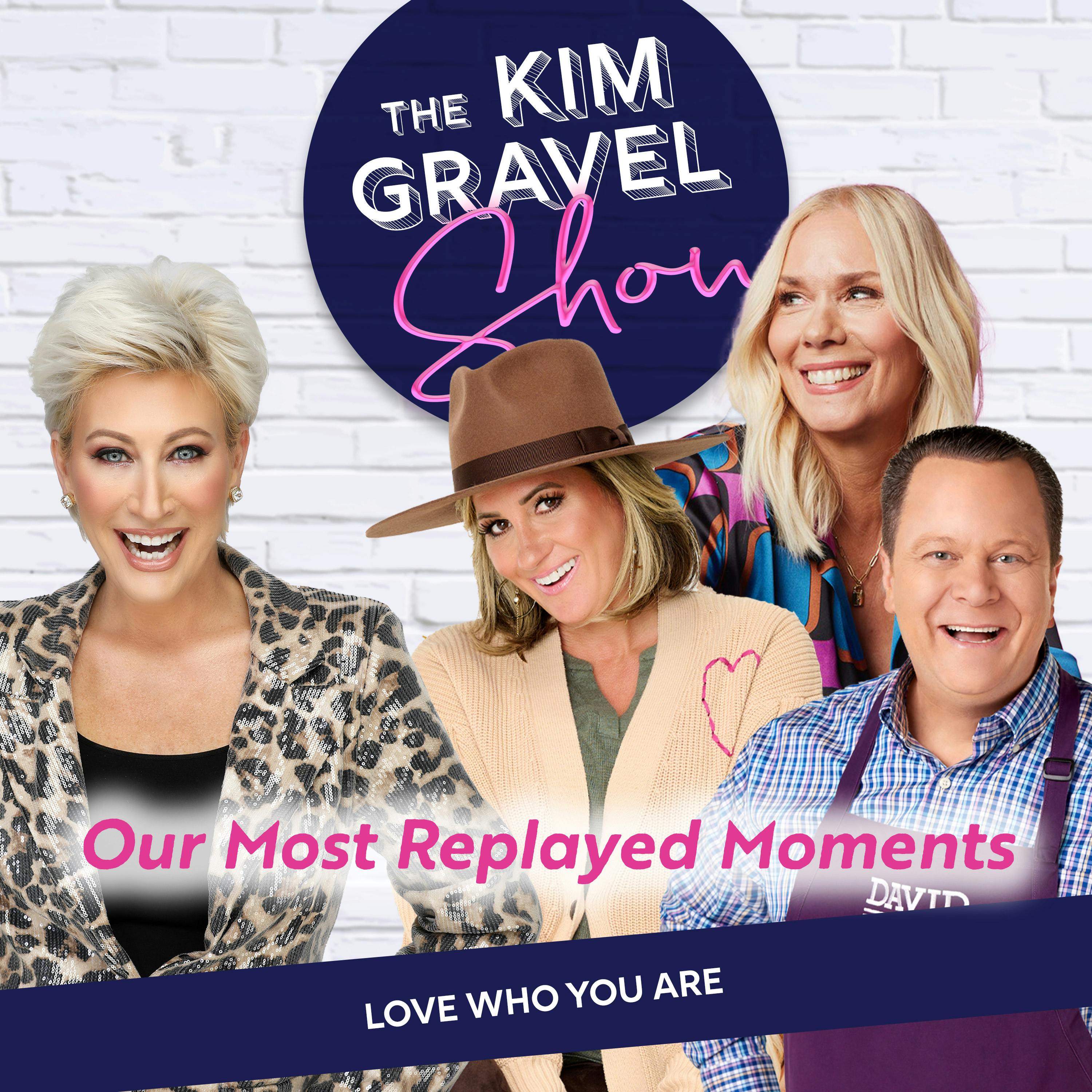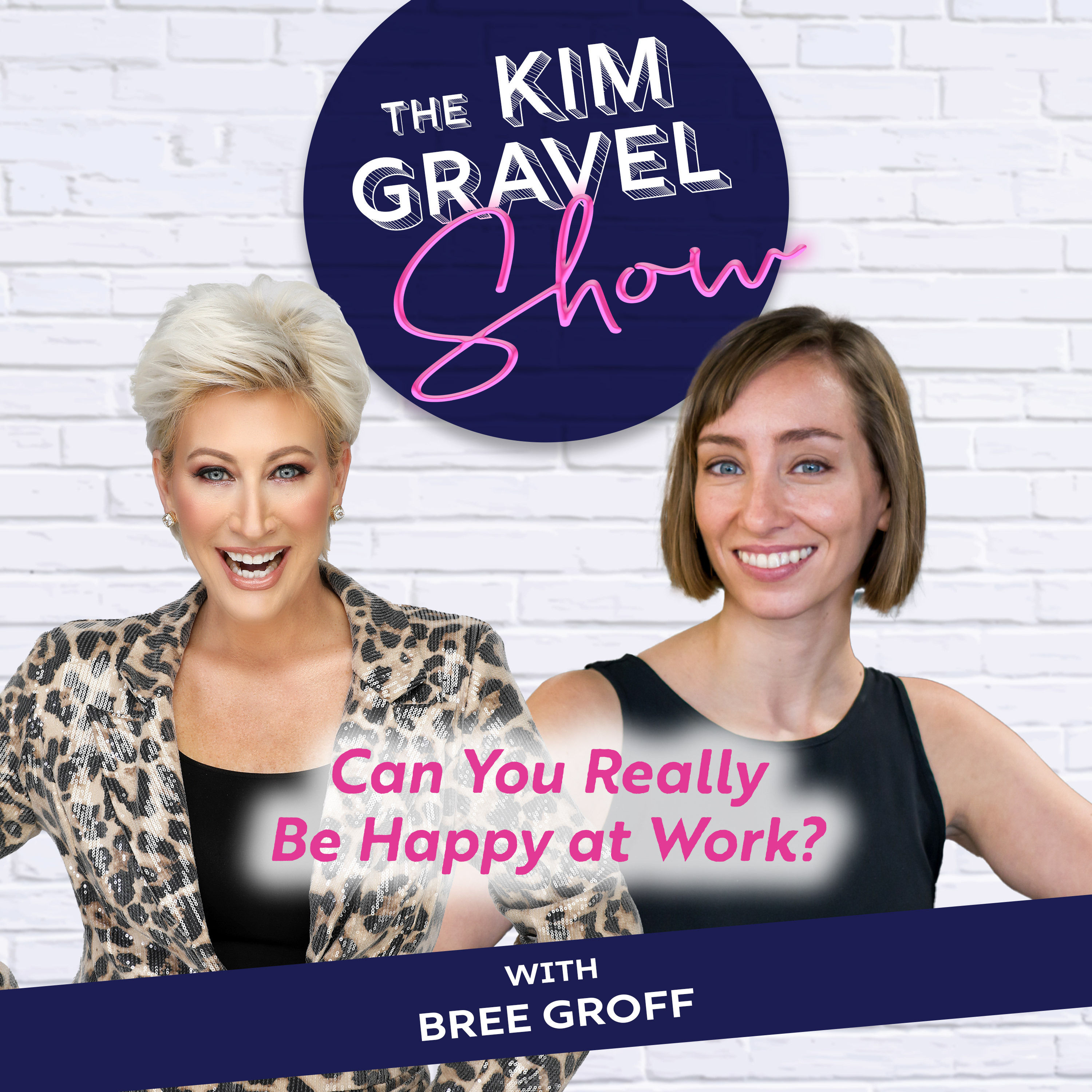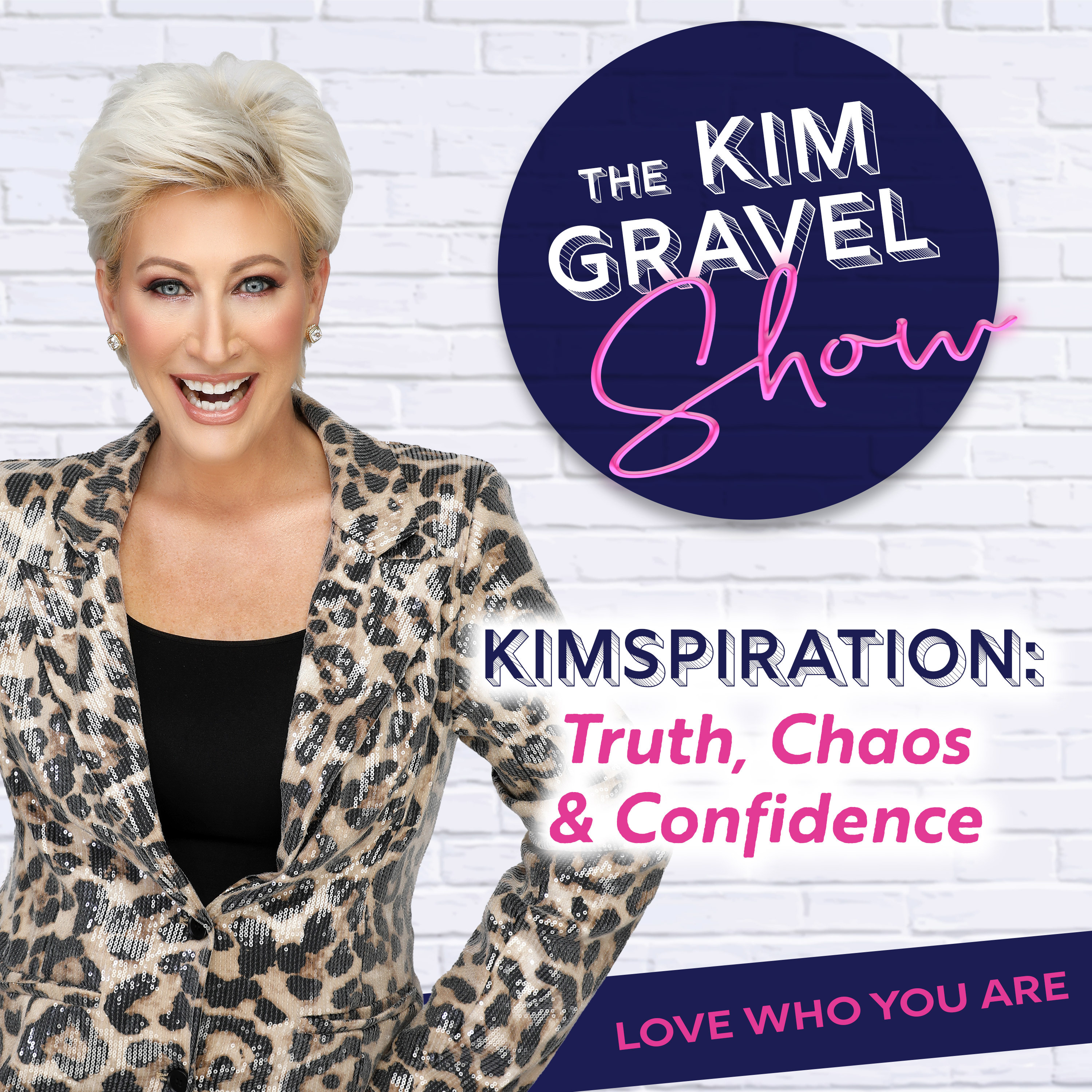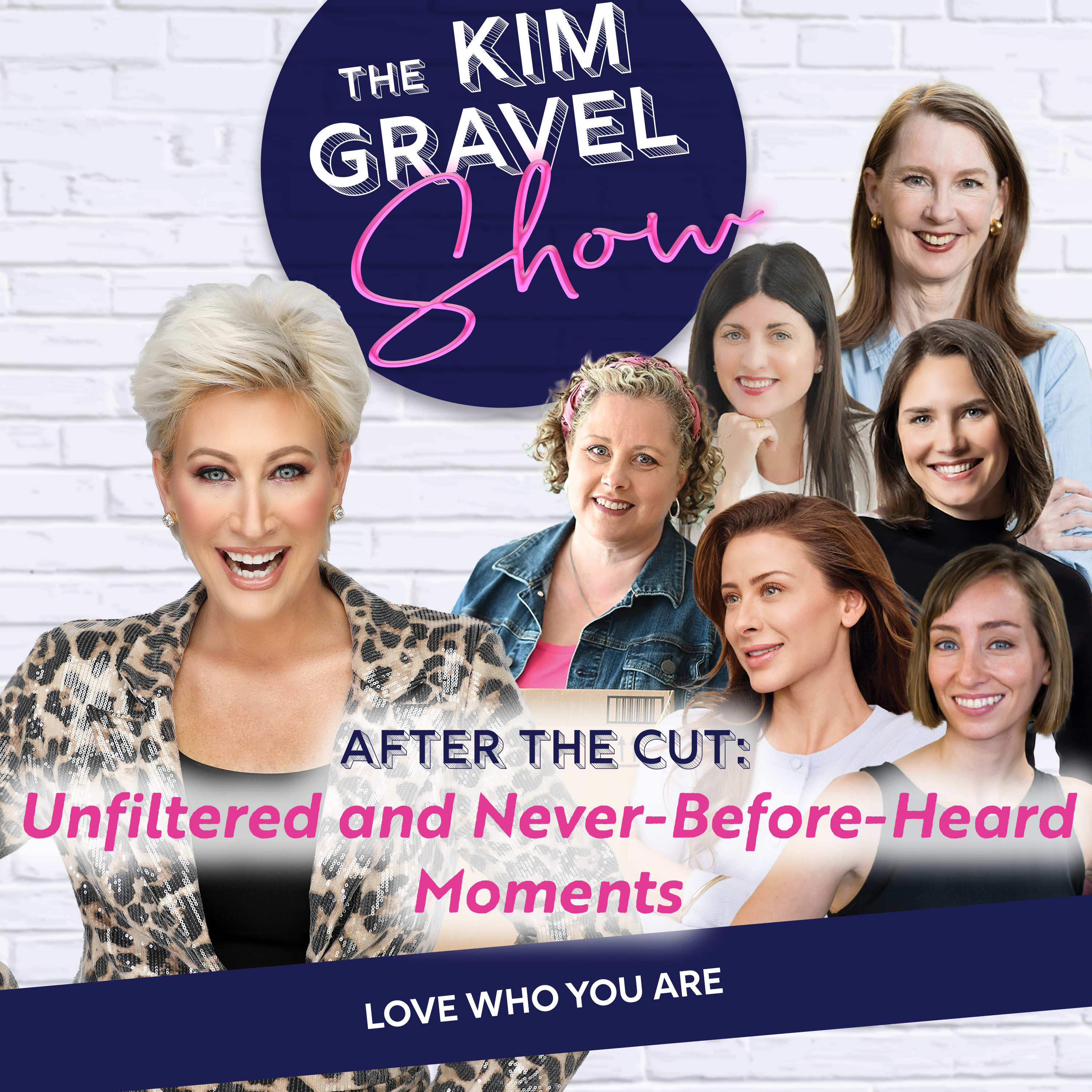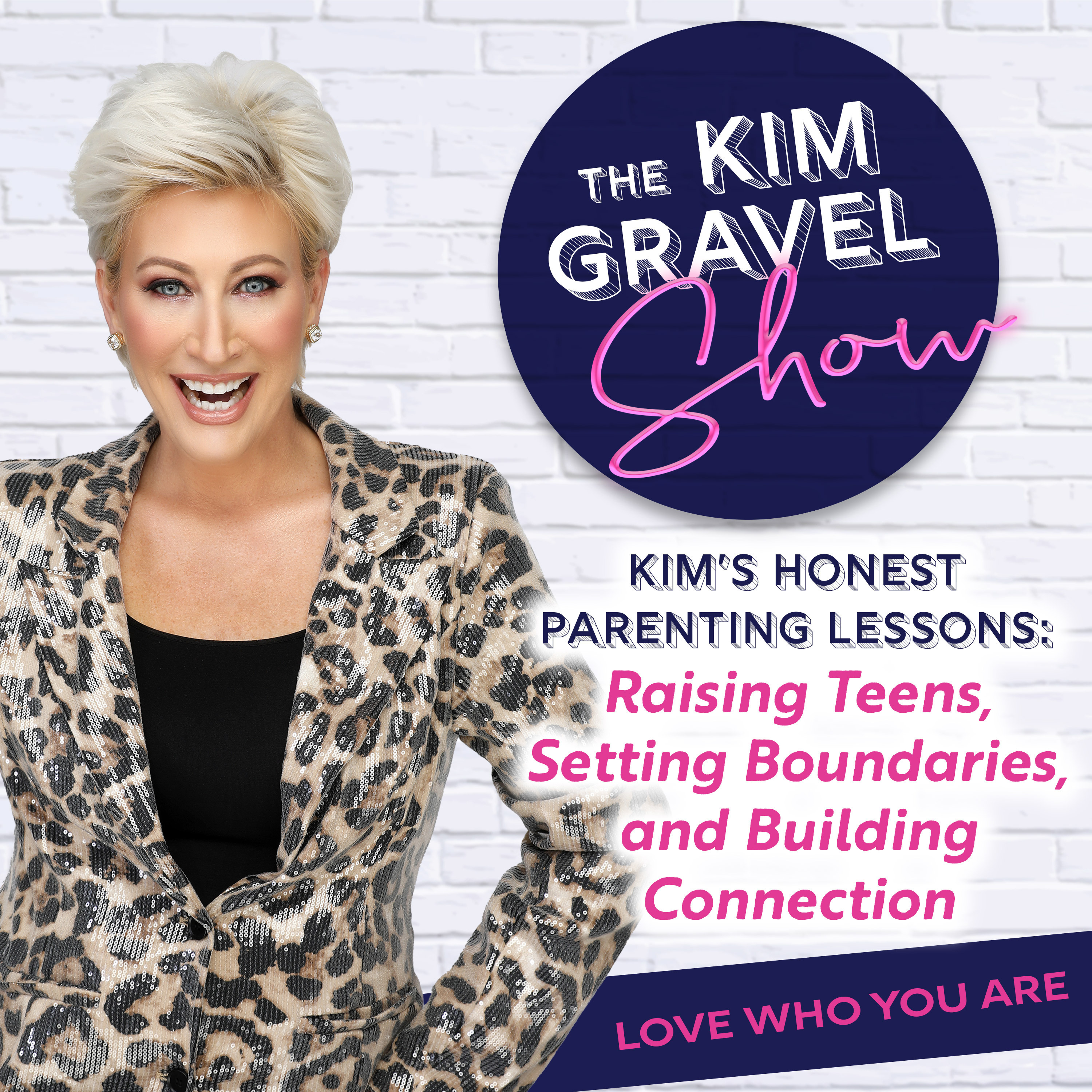My In-Depth Conversation with CIA Spy Jonna Mendez Part 2
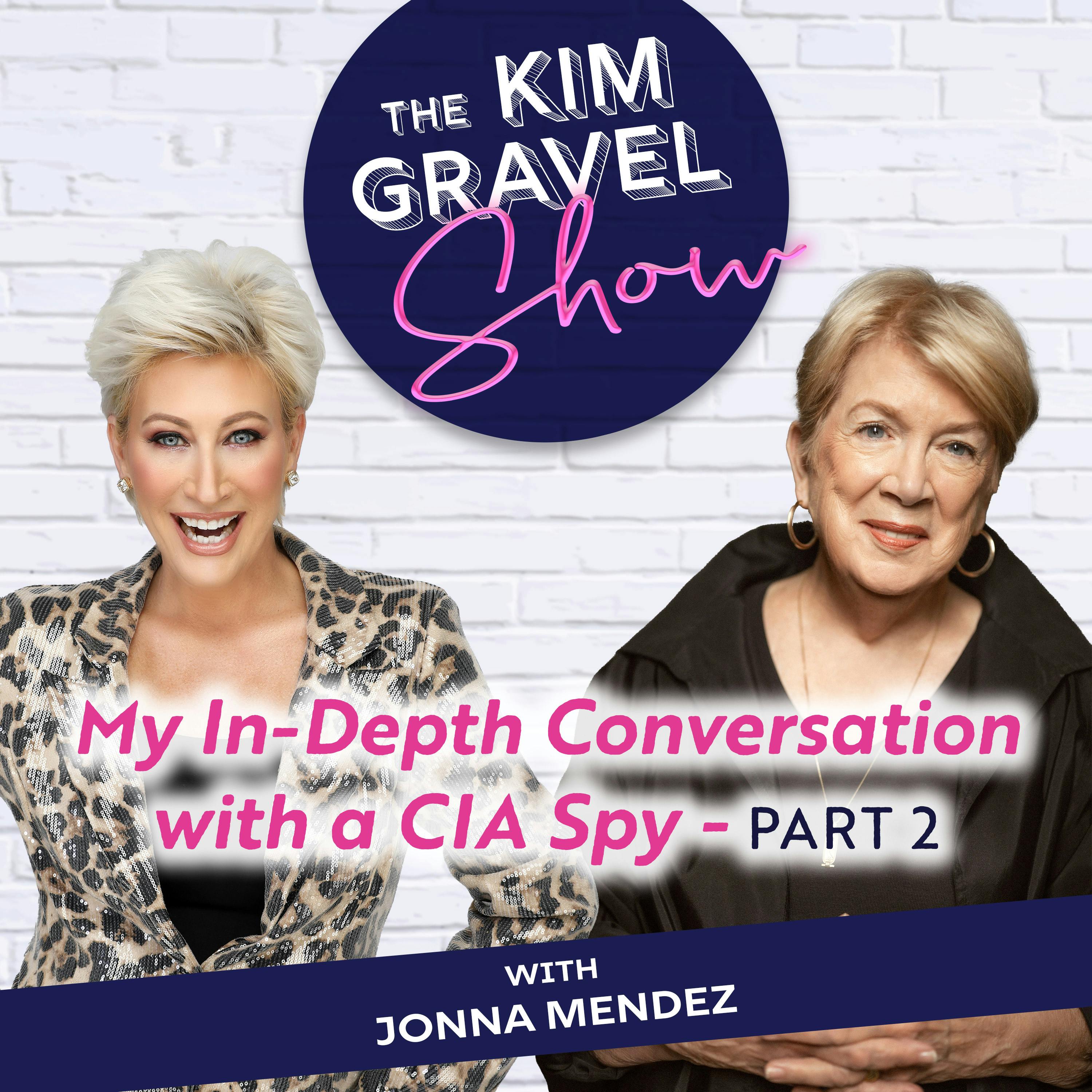
Jonna Mendez reveals more CIA secrets and inspiring life lessons.
My shero, Jonna Mendez, former CIA Chief of Disguise, returns for Part 2 with more stories straight out of a spy movie! This week, she reveals how she disguised herself in front of the President, collaborated with Hollywood magicians, and how her husband’s experiences inspired the film Argo. Jonna’s journey highlights how women grow stronger with age and offers invaluable advice for reaching your goals. This episode is packed with wisdom, inspiration, and incredible stories that you won't want to miss!
Jonna’s new book, In True Face: A Woman's Life in the CIA, Unmasked is out now!
In this episode:
- How Jonna disguised herself in front of the President
- Jonna’s experience with love and relationships during her CIA career
- Planning intelligence operations in the CIA
- Common CIA myths debunked
- How her husband’s story inspired the movie Argo
- Key advice for women to achieve their dreams
Jonna Mendez, former Chief of Disguise for the CIA's Office of Technical Service, used her unique skills, including photography, to take on significant and challenging roles overseas. She is the bestselling coauthor of The Moscow Rulesand, and Argo. In her new memoir, In True Face, Jonna shares her riveting and courageous story as a female spy during the Cold War, revealing the high-stakes drama and perseverance needed to thrive in a male-dominated field.
Here is my favorite quote from this episode:
“I think women should aim higher. I think they should ask for more. I think they should expect more. I think if you combine all those things you will end up having more.” - Jonna Mendez
Do you want to hear your voice on the show?
Call me and leave me a voicemail at 404-913-6460 and let me know why you love who you are!
There is BONUS CONTENT in our free newsletter so make sure to subscribe at https://www.kimgravelshow.com
Collecting Confidence, my best-selling book is now available in paperback with a brand new discussion guide!
Click this link to buy it now.
Join my Love Who You Are movement at https://lwya.com
Connect with Me:
Connect with Jonna Mendez:
Song by Jonna's son: The Way It Goes
Book: In True Face: A Woman's Life in the CIA
New episodes of The Kim Gravel Show drop every Wednesday at 6pm EST.
Support our show by supporting our Sponsors:
Factor
Factor is America’s #1 Ready-To-Eat Meal Kit. You’ll save time, eat well, and tackle everything on your to-do list this summer.
Head to https://www.factormeals.com/kim50 and use code kim50 to get 50% off your first box! Plus get 20% off your next month while your subscription is active!
*This transcript was auto-generated*
Kim:
Hey, y'all. Kim gravel here. And this is the Kim gravel show. Zac, I'm so excited about part two.
Zac:
Part two, baby.
Kim:
Part two. You know it's good when you've got part one and you've got part two. This is part two of my conversation with former CIA chief of disguise Jonna Mendez. She's got a book out called in True Face. And when I tell you this is one of the most favorite interviews that I've ever done, I mean, Zac, not only was she pro woman insightful, I mean, the life this woman has lived.
Zac:
It is wild and honest. Honestly, part two is better than part one. This is one of those episodes where I'm, like, so excited. Like, we couldn't cut anything. Kim, we were talking about it, and it was like, you have to make it, too. Cause we will not cut any of this out.
Kim:
You were like, kim, we got to do part two. So now, listen, if you've missed part one, though, you can definitely go back and listen to that. You don't have to, but you really should. Cause that's how fantastic this woman is, and that's how fantastic this information is. And her book is so good. All you need to know is that Jonna was the CIA's chief of disguise. And she opens up to me about being a woman in a man's job and how, especially back then, and how she stayed a step ahead of the KGB during the cold War. I mean, he came in touch, face to face with a terrorist.
Kim:
We pick up the interview where Jonna is telling us about the time she went to the Oval Office and had a meeting with President Bush Sr. Wearing a full disguise, like a totally different person looks like. And it's just mind blowing what this woman has done in her life. Let's get into it. Roll it, Zac. You don't want to miss it.
Introduction:
This is The Kim Gravel Show.
Kim:
My guest today is a real life spy. Would we be shocked to know who was and was not in disguise in our world today?
Jonna Mendez:
I said, I am the new chief of disguise. I'm wearing the best thing we've ever made. I want to show it to you.
Kim:
And he sparkled, kind of like in a roundabout way. You were married to Ben Affleck.
Jonna Mendez:
You want the personal stuff.
Kim:
What's the most realistic spy portrayal?
Jonna Mendez:
Who's gonna pick up a dead rat? Absolutely nobody.
Kim:
Do you ever think about what it would have been like just to live a normal life?
Jonna Mendez:
I think women have trouble asking for a raise. Ask for the raise. Ask for the job. And I think a lot of women would be surprised.
Kim:
You are my very favorite person of all time at this point in my life, and that's including my children and husband. Okay. I saw this picture of you when you were in the White House. You were in the Oval Office, I think, who was president? Was it George Bush?
Jonna Mendez:
George Sr. George Hw.
Jonna Mendez:
The senior bush?
Kim:
George. Yeah. And you. You were showing the disguises.
Jonna Mendez:
There I am.
Kim:
We see all over the social media TikTok, all over these disguises, you know, and a lot of things I'm like, is this a conspiracy theory? Until I started reading your book, until I look at these pictures when I was, like, cyber stalking you, girl, this stuff is real. And that was when, in 19. What?
Jonna Mendez:
I don't think I could put a date on it. I could go back and look.
Kim:
And you pulled that mask off, and what were you doing there? Just showing how advanced you guys have gotten in disguises.
Jonna Mendez:
George Hw Bush, who was president, had previously been the head of CIA. He had run CIA. And he has, in his hands, in one of those pictures, some big glossy prints of him in disguise. That's always fun to look back and like, oh, my God, look. Look at me. Look how. Look how good I looked, or whatever. So I did that.
Jonna Mendez:
I gave him those pictures to kind of get him in the mood, and he didn't know that I was there in disguise. We'd been talking. I said, by the way, you know, I am the new chief of disguise. I'm wearing the best thing we've ever made. I want to show it to you. So I'm going to take it off. And I go to. And he says, no, don't, whatever, don't take it off.
Jonna Mendez:
And he got up and he came and he walked around me, just peering, looking. I don't know what he thought he was going to see. Like maybe a. Maybe a fake nose or something. I don't know what he was looking for. But he didn't find anything. So he went and sat down. He said, okay, take it off.
Jonna Mendez:
That's a Tom Cruise peel. You take it off. And he just loved it. And he sparkled. It's the most animated I ever saw him, even on a tv screen. He was delighted with this thing that I'm holding.
Kim:
Was that like a new technology, John? Was that something that was new to. Okay.
Jonna Mendez:
It took us ten years to get there, to get the material, to get it right where you could actually, where it would articulate, where you could brief someone, and they would have no idea that you were wearing a mask. It was the ultimate prize for us. Because once we could do that, we could do all kinds of things with it. I mention in this book, I go into it in some detail, that we were always in cahoots with the magic community out in Laden. That we were interested in the magic builders, not the David Copperfields, not the magicians, but the people that build these deceptions and illusions. How do you fool the eye? And today I'm still a big fan. I mean, if I'm in Las Vegas, I'm in the front row of the show trying to figure it out. I'm just like everybody else.
Jonna Mendez:
But we used to work with some of the people that did that, and they helped us understand what you could do. If you could make a fake animated face and wear it, for instance, it could be a real face, it could be somebody else's face. So we could.
Kim:
Okay, okay?
Jonna Mendez:
Yeah.
Kim:
Okay. I have to tell. I have to. So do you. Okay, so that was back then, so there's no telling what's going on now, right? Like, I mean, the technology, okay. And you probably, I don't know if you can tell or if you can't tell. I'm not trying to go up. I do not need anybody researching me.
Kim:
But I want to say, would we be shocked to know who was and was not in disguise in our world today?
Jonna Mendez:
The only reason we needed these disguises in our work was we basically built this stuff from Moscow where we were under such tight surveillance, we couldn't turn around without bumping into one of them. You couldn't mail a letter, you couldn't make a phone call. You certainly couldn't meet with a foreign, with a Russian who was going to give you intelligence. That was the KGB's job, is to prevent us from doing our job. But maybe, maybe you go for a walk and maybe they're following you down the street. Of course they're always following you down the street or in your car or in your apartment walls. They're listening to you. You're always under surveillance.
Jonna Mendez:
So if that's your starting point, what if you're walking down the street, surveillance team is behind you. You go into, I don't know, a kiosk and grab a pack of cigarettes or a newspaper, come back out, keep going down the street. They're right behind you. But what if it's not you that came out? What if it's what we call you two? What if it's someone else with your face on and your clothes on? What about that? What if you're still in the kiosk and they're following an imposter down the street, then you're free to do whatever your job is. And you can have arranged. This is like choreography. You arrange to be at another place at another time, and the one that they're following walks into that place, and you walk out of. When it works, they never even know that you did it.
Jonna Mendez:
So you can do it again and again. And by the way, when you go to Las Vegas and look at some of these magic acts, that's what they're doing, too.
Kim:
They're not, they're not.
Jonna Mendez:
They're not so much wearing masks, but they can get two beautiful blondes about the same size, about the same height, same hairdo, and they can switch them in a. In a magic scenario, and you don't know, there's. The switch has been made. That's an old trick in the magic community that we embraced.
Kim:
All right, you co wrote the book the Moscow rules.
Jonna Mendez:
Yeah.
Kim:
And Argo, we'll get there. What are some of the rules for surviving in Moscow during the Cold War? I mean, like. I mean, that was the time that was tough.
Jonna Mendez:
That was.
Kim:
You were there. You were doing it.
Jonna Mendez:
That was a tough time. The one that stood out to me was just, don't piss them off. Don't make them mad.
Kim:
How do you do that? Just behave or just lay low?
Jonna Mendez:
You know, a lot of new people that would get there and they'd see, oh, somebody's following me in a car, and they do something illegal, like go the wrong way down a one way street to try and get rid of the surveillance behind them. Oh, all that does is make the.
Kim:
So you would never pour a beer over anyone's head at that point?
Jonna Mendez:
Not KGB. KGB would probably kill you if you did that. No, you just don't make them mad. And, you know, in 2016, right before the election, when everybody was so sensitive about what was going on, we were in Russia, there was a video that came up online. Everybody saw it. Everybody in my world saw it. Where? It's a security camera outside the american embassy in Moscow. And it's like two in the morning, and this camera is just always on.
Jonna Mendez:
And you see a taxi pull up, you see a guy get out. He's wearing a coat, he's wearing a hat. It's winter, and he's walking toward the electronic doors of the american embassy. So you have to assume that he's an american officer. And then out of the right side of the frame, this figure comes hurtling out of, like, a shed, attacks the guy that got out of the taxi, throws him to the ground and starts beating him to a bloody pulp. So the guy that's underneath starts making his way. He's wiggling his way to those electronic doors. And he finally touches one of the doors.
Jonna Mendez:
It slides open. And he, with the guy on top of him, they slide into the lobby. Now, they're technically on american soil, because inside the embassy is american soil. The guy doesn't stop. The video cuts out. That's when I told Tony about that. Tony was not well. He was in bed at that point.
Jonna Mendez:
I told him about it. He said, rule number four, don't piss him off.
Kim:
Just never piss him off.
Jonna Mendez:
Don't piss him off. No, no. Get you.
Kim:
Your husband, Tony, you're speaking of. You co wrote a lot of this book, the Moscow Rules, and also you co wrote at Argo with him. He died of Parkinson's, right? In 2019.
Jonna Mendez:
Yeah.
Kim:
You miss him?
Jonna Mendez:
Yeah.
Kim:
What's Tony's story? Was he just a great writer? Was he in the. Like, how. Like, what happened with John? I mean, did the business just tear you apart, or. I mean, I hate to get all personal, but why not go there? John and I, we are women.
Jonna Mendez:
And I don't really go into it in the book. And a lot of people ask what happened? Because it looked okay to us. He was in the office of Security. I was in the office of Technical Service. We were in two totally different communities. Things like office parties, things like socializing. John and I were neither really social people. I'm a little bit of an introvert.
Jonna Mendez:
And so we just ended up in two different worlds. And when you're overseas, that works, because those two worlds mingle. They must. But when you're back home, you know, I didn't want to go to his office parties, and he didn't want to go to mine. And we just kind of very gently split. It surprised. It surprised all of our friends, but not the really close ones, because they. They kind of knew.
Jonna Mendez:
On the other hand, the other side of the coin is, I had known Tony. I'd probably worked with Tony my entire career, not closely, but we were both in the same office, and I knew of him. First time I bumped into him was in Bangkok. I have to be careful in Bangkok. I was babysitting the chief of stations secretary's desk, and this african american guy came in and sat down on the sofa. And I wasn't expecting anybody to be visiting, but I didn't challenge him. And he just sat there. I thought, he's waiting for one of the officers to come out.
Jonna Mendez:
And eventually he left. And later on I said to someone, do we have African Americans on this staff? I didn't think we did. They said, no, we don't. I said, well, who was that? Someone just was sitting on the sofa. They said, oh, that's Tony Mendez. He's trying out a new disguise. So that's the first time I ever saw him. Although I didn't actually fell in love.
Kim:
Right there that you knew. You knew Tony was the guy?
Jonna Mendez:
No, we just. We worked together closely over years. I knew his kids, I knew his wife. Never dreamed it. Never dreamed that we would be a couple. And then we became a couple.
Kim:
And didn't you get. You got. You had a baby? Very, like, so let's. You gotta get the book and read all of it. Cause I could sit here and talk to you for three full hours. I'm not gonna put you through that. Everybody's gotta get the book so you can really get to know Jonna. But didn't you have a baby later on in life, like the second act? And is that when you quit the CIA? Shortly.
Kim:
Okay, tell us all of that, because.
Jonna Mendez:
Like, you want the personal.
Kim:
I love the.
Jonna Mendez:
You want the personal stuff just a.
Kim:
Little bit, if you don't mind. Because having a child, I had my first child at 36 and my second one at 38, so I was a little bit late. But you were 47.
Jonna Mendez:
Yeah, I went, but my mom was 43 when she had my youngest sister and her mom was 42 and she had my mom. So we say in my family, it's in our genes. It's just.
Kim:
I mean, but little joke girl, like, and you're still in the CIA and you're pregnant.
Jonna Mendez:
Yeah. The way that worked. When Tony and I actually started dating, we had a talk and he said, well, this won't work. One of us will have to leave. That's just how it is. And he said, you know, I could leave. I could just start painting full time. That's one of his.
Jonna Mendez:
That's one of his paintings behind me. So he said, I'm glad to do that. I said, what if we break up? Then you'll hate me forever because you will have left this great job. No, no. He said, we're not going to break up. So he retired. He retired and I was working. And because we had broken that chain of command thing, well, then we got married and I'm still working.
Jonna Mendez:
So then an issue of Time magazine came out and it had a tree on the COVID This tree with all the leaves were on the ground. That was the image of the COVID and one big word said, menopause time. Mag.
Kim:
This was with fallen leaves, with a.
Jonna Mendez:
Barren tree, dead tree. And I took it to Tony. I took it to Tony, and I.
Kim:
Said, oh, I love it.
Jonna Mendez:
I said, you should probably read this. And he said, cause he's a guy. He said, why? I said, just.
Kim:
Uh huh, right, exactly. I totally get that comment.
Jonna Mendez:
Just read it. And so he looked at it, and he said, oh. He said, you're pregnant. I said, no, no, no, Tony, I'm 46. And then I called my best friend, and she said, yeah, I think he's right. So I took a test, and I was pregnant.
Kim:
Then you got that menopausal baby.
Jonna Mendez:
I did. And then I wasn't gonna leave because I just simply loved my job so much. I said, you know, I'll keep working and you keep painting. And we set up a playpen in his studio with little baby Jessie in it. And Tony, be ever creative. Always creative. Just this incredible guy. He got some old.
Jonna Mendez:
They look like broom handles, and put them across the playpen and painted pictures of people that we knew, all kinds of faces. So he's painting, and if Jesse's making little noises, he'd go over and he'd just roll the poles and a whole different set of faces would. Jesse thought he was in the middle of the universe from when he was in that crib. So they were having so much fun, and I couldn't stand it, so I ended up retiring. Yeah, I.
Kim:
Do you miss it? Cause I know you've been very successful since you've retired from the CIA. Do you miss it?
Jonna Mendez:
Sometimes when I'm reading the paper, and I. And I want to know more. And I know. I know that you could know more.
Kim:
There's more.
Jonna Mendez:
But it's been. It's just been an amazing ride. And you think you leave intelligence. And then intelligence started coming back. International Spy museum started percolating, and they had. They had. Oh, my God. They had Keith Melton and his artifact collection.
Jonna Mendez:
They had Mister Miltmaltz with $40 million to invest in the initial museum. They had museum people. They had curators. They had everything you need. They had real estate. But they didn't have a single spy. They didn't have a spy. So they came to us and said, could you.
Jonna Mendez:
Keith Melton came to us and said, maybe you could help them with the flow. Like, how. How do we break the subject into manageable pieces? And so we became involved with the museum, and today it continues. We are. I am at this point very involved. It's like another family.
Kim:
It had to be.
Jonna Mendez:
It's like the CIA was. That was our first foreign family and this is our second one.
Kim:
Okay. So kind of like, in a roundabout way, you were married to Ben Affleck. And I say that because Tony was played by Ben Affleck in Argo. I will tell you, I've watched Argo like three times. I'm actually gonna go watch it after this interview again. What? That movie, it was based on a true story, right? It was based on real events that happened to Tony. Absolutely.
Jonna Mendez:
Absolutely. He was never going to tell the story of Argo. It was. I have to tell you, it's just one story. It's not the only story. There are other great stories.
Kim:
Do you know them? Do you know them all?
Jonna Mendez:
I know a lot of them, but I don't know them all. I have no reason to know them. They silo information at CIA, George Tenet decided right before 911, when things were smooth and things were quiet, to just give the american public one example of a good story. Most of the stories that come out about CIA are not good stories, they're problems. And so he told Tony he wanted to make that story known. And Tony said, well, Tony's saying to the director of CIA, but it's classified. Tennant said, no, actually it's not. We've declassified it.
Jonna Mendez:
There's no reason to keep it. And off. Off they went. Where? We lived out in the. We lived in the country about 40 miles outside of DC on 40 acres in a house that Tony built. And all the neighbors out there kind of lived on 40 acres. Nobody was farming. They just liked big properties and Blue Ridge mountains.
Kim:
I get it.
Jonna Mendez:
We were by the appalachian trail and we were by the Potomac river. And everybody out there who had known Tony his whole adult life had no idea what he did. The answer out there, when people would say, so what do you do? You'd say, oh, I go down the road. That would mean, oh, yeah, I go into DC, probably work for the government. You don't want to know. And they didn't want to know. So that was the succinct answer. I go down the road.
Jonna Mendez:
Oh. And that's what they knew about Tony is he worked somewhere in DC. So they were, they were. Everybody was kind of shocked. It was coming out of a life undercover, perfectly comfortable as an undercover to a spotlight where everybody knew Tony and what he did, it was startling.
Kim:
What, that was that uncomfortable?
Jonna Mendez:
I think it was initially, yeah. Yeah. And then he got used to it and he got really good at it. I mean, it's just like this huge round of applause at the end of your career. There's nothing wrong with that. And it reflected well on the agency that he loved just as much as I do. There's nothing wrong with that.
Kim:
You've lived such an exciting life. I got one quick question for you. Before we do rapid fire, do you ever think about what it would have been like just to live a normal life?
Jonna Mendez:
No.
Kim:
No regrets?
Jonna Mendez:
No.
Kim:
No regrets?
Jonna Mendez:
No. Like, right now, I'm starting. I'm in the middle of another book. I can't imagine what we would call a normal life. I can't imagine. If I had not left Wichita, I might have gone to work.
Kim:
Aren't you glad you did, though?
Jonna Mendez:
I might have gone.
Kim:
Aren't you glad you did?
Jonna Mendez:
I might've gone to work for Boeing. That's where everybody worked. Boeing was in Wichita back then. Or Purina dog chow. There were career opportunities.
Kim:
Listen, Jonna, only you can go from a Wichita to a secretary to the chief of disguise in the CIA. Only. Only you, girl. I'm telling you, you're my shero. I just know. I love how. Cause we didn't even touch on the fact that women were treated, demoted. A lot of times when they would come back from assignment, women were just not celebrated.
Kim:
Has just one last question? I know I said that was last one. We got one more. Has that changed? Has that. Cause you were big in making that switch. Are women now treated, paid, acknowledged?
Jonna Mendez:
I think it's changed more fairly. I think it's changed in the same way that the american public has changed women in industry today.
Kim:
So not so much.
Jonna Mendez:
It's certainly not equal, but it's harder to maintain that misogyny that was going on. It's hard to maintain that in the light of day. I mean, we've had Gina Haspel. We've had women running the place. There was a time, briefly, when every piece of the CIA was run by women. And the women have always been okay at the very top tier. They've always been good at it, and they've been able to get there. It is in that mixture of operational agents overseas collecting intelligence that women have never been allowed to really actively participate.
Kim:
And I'm gonna. I'm gonna take a quote from you. They need to lean into their soft power.
Jonna Mendez:
Yeah, they do. I think they are. I mean, I meet a number of them today, and they tell me great stories that they. They probably. Some stories they shouldn't tell me, but. But they. They think that I can I know what a secret is, and I can keep a secret.
Kim:
I was gonna say, I think. I think I could tell you. I've got a couple of things I'd like to share and get advice with, and I know you'll take it to the grave, so. Yes. You're a yemenite. Good gatekeeper. Secret keeper. Okay, before you go.
Kim:
Before you go, I've got this thing I do called the rapid fire questions, where I just ask you a question. Whatever comes to mind comes up and comes out. Now, don't think of this as an interrogation. Cause I'm not a professional.
Jonna Mendez:
Okay?
Kim:
So I'm just saying, like, whatever comes up, comes out. Okay.
Jonna Mendez:
You're not gonna pull my fingernails out or anything?
Kim:
I will not. Or put you in a small box.
Jonna Mendez:
All right?
Kim:
I promise.
Zac:
Just some light water.
Kim:
Well, you're kind of in a small box right here. Rapid fire questions. What did you get paid in the CIA?
Jonna Mendez:
Not enough.
Kim:
I'm serious. Are you underpaid?
Jonna Mendez:
We're paid, like, g's scale, just like the rest of the government.
Kim:
Dang. You can't even get rich doing that.
Jonna Mendez:
Absolutely not.
Zac:
Is there hazard pay? Is there extra if you're, like, in a war zone?
Jonna Mendez:
There was extra pay if you traveled more than 30% of the time, and I used to routinely get that pay, but it's not much.
Kim:
But you're not getting rich off of being in the CIA?
Jonna Mendez:
Oh, no, no. Nobody's there for the money.
Kim:
Okay. What's the most realistic spy portrayal in popular media or tv?
Jonna Mendez:
I think Joe Weisberg's the Americans looking at a food.
Kim:
Oh, I haven't seen that. I've heard that. So good.
Jonna Mendez:
It's a family with kids. Kids old enough to say, just a minute. What's going on? Who's that in our living room? How come these people are hanging out around here, this family grappling with that piece of it, and there's an FBI guy that lives next door who keeps going. That doesn't make any sense. Let's see what they just did now that it highlights a lot of the logistical problems, the family problems, in addition to having some really great russian villains. It's a good show.
Kim:
Oh, I'm glad. Shows Ami.
Zac:
I love that show.
Jonna Mendez:
But the disguises are not the best. Her disguises are not enough because they just kept putting. She's a very beautiful woman. They just keep changing the color and style of her hair. It wasn't enough, but he was good. Did you know they got married?
Kim:
Maybe.
Jonna Mendez:
Did you know they got married and had a baby, the actor in the.
Kim:
I can't remember their name in real life.
Jonna Mendez:
Yeah.
Zac:
Oh, really?
Kim:
Oh, my gosh. They sound like they need you as a consultant on there. I see. A third career.
Jonna Mendez:
Maybe they actually work for the CIA. And that movie was just. That series was just.
Kim:
That was their cover.
Jonna Mendez:
That was their cover. It's a fun idea.
Kim:
You know what? I don't know, Zac, but I'm thinking I might be a good CIA agent. We'll talk later. Okay. Here we go. What's the biggest myth about being a spy?
Jonna Mendez:
Oh, gosh.
Kim:
But you get paid a lot.
Jonna Mendez:
Oh, we just demolished that. That. It's. That it's just endless excitement and drama and.
Kim:
Right.
Jonna Mendez:
And it's not. It's endless planning and plotting and making. Making sure everything is. And then there's a little moment of excitement. But it's a lot of. A lot of routine with these flare ups now and then. They're exciting.
Kim:
Oh, lord. Nobody likes to flare up. So. I get it. So you. So you prepare a lot for that one moment in time.
Zac:
Yeah.
Jonna Mendez:
Like to do a dead drop in.
Kim:
That's how you stay alive, though, right?
Jonna Mendez:
To do a dead drop in Moscow. We plan for six months where to put it, make a sketch of it. How do we get the sketch to the agent? Just endless detail to make sure nobody.
Zac:
For a single dead drop. Or like a reusable. Like, this is where we're gonna do it every week or whatever.
Jonna Mendez:
Single dead drop?
Kim:
Yeah. What is a dead drop?
Jonna Mendez:
Well, a dead drop is intelligence related material that's meant for your agent, and you're going to leave it somewhere for him. You're going to. You're going to put it in a concealment device that is sometimes a dead thing. So sometimes it's a dead rat. A dead rat was something we used in Moscow extensively. We had a series of dead rats, and they get all tidied up and we put Velcro in their tummies. And I'm always amazed at how much you can get into a dead rat. There's more room in there than you think.
Kim:
Do you hollow the dead rat out or. We don't work around.
Jonna Mendez:
We have taxidermists who do that. I think someday they're going to put zippers in, but it's perfect because who's going to pick up a dead rat? Absolutely nobody, except maybe a dog. So we dipped them in Tabasco. And if you walked into our labs on the right day, they would have just had dead rat day the day before. And they hang them by their tails to drip dry with Tabasco sauce.
Kim:
Cause the animals don't like the tabasco.
Jonna Mendez:
Oh, they'll run away howling. They'll drop it. Good Lord, we were inventive.
Kim:
Okay, I think I have just figured out how to keep my airpods in my charger for my phone, save for my children.
Jonna Mendez:
The old dead rat.
Kim:
You've just given me an idea, people. See, I'm telling you, I could be as. I could do this, I could do co work.
Zac:
Wait, I'm curious. So wait, you guys would have the dead rat, you would put it somewhere with information for a russian operative, and then that person would pick it up.
Jonna Mendez:
But this is all pre planned. This is why it takes so long. He has to know that we've put it down. So we have to put up a signal somewhere. And the signal will probably be a mark on something like a mailbox on his daily path, wherever he goes to work, whatever he does.
Kim:
Good Lord.
Jonna Mendez:
So he, we put up a mark that says we've put it down. He sees it, he goes to that tree in that forest, he has to know which one. And then after he gets the dead rat, he has to put up a mark to us that says, I've got it. Because if he doesn't get it, we have to go pick it up ourselves. You can't just leave it laying there where somebody could step on it.
Kim:
Anyway, is all of this going on? Like, is this happening all around us in the world and we don't even know it?
Jonna Mendez:
Different versions of it, yeah.
Kim:
Okay.
Jonna Mendez:
It's the clandestine part of spying where nothing is what it seems to be. There's a lot in the, in the spy museum, we've got a lot of examples of this idea. When I say I did photography at Ciataine and you think, oh, she had a little film camera. It was back then. No, no, I had like a Mont blanc fountain pen that still would write, but in my pen was a camera so that I could walk up to Putin's desk with my pen and a notepad, and he'd be giving me notes and I'd be. And he'd turn his head because somebody's calling his attention. And I could take my, my pen and with one finger, silently take a picture of the agenda or the minutes of the meeting on his desk. He would never know.
Jonna Mendez:
I got that film back in my dark rooms, and that's the film that I would develop, that you could get 100 pictures on the film in a pin. That's just one way we concealed a camera. We could make fake pregnancy bellies for one of the wives. Put a camera in it, and she'd have a button down dress or shirt, and we'd put a camera behind the button and put an actuator in her purse, and she could take pictures all day long.
Kim:
And, y'all, this is for cell phones. I'm just saying. This is before cell phones.
Jonna Mendez:
Oh, yeah, yeah.
Zac:
This is film. This is film. Actual film, right? All of it.
Jonna Mendez:
It was. It was.
Kim:
These kids today have it so easy now they can just blink with something going on.
Jonna Mendez:
Well, the part of it. I don't know, today is clearly everything has changed. Everything has changed with the cell phone.
Kim:
Yeah.
Jonna Mendez:
Half of the tools of our trade are already in a cell phone today. So I'm not sure how. How it works. It's got to be wildly interesting.
Kim:
Oh, my gosh.
Jonna Mendez:
All right.
Kim:
If you had to make a quick escape, what would you put in your bag?
Jonna Mendez:
Identification. Well, you see, it would depend. Escape from who and where? Need some form of identification. You need some money? You need some cough medicine? Because I've been trying to cough all morning. I don't know those kinds of your little go bag. It would depend on where you were and where you're going to go to, but you got to have.
Kim:
Did you always have a go bag?
Jonna Mendez:
I was pretty much always able to move if I had to. You need id and you need money and you don't need a ticket. Cause you don't know where you're gonna be or what you're gonna be leaving. But if you have id and money, you can usually. You can usually manage.
Kim:
What advice would you give to a young woman on her first day in the CIA?
Jonna Mendez:
Keep your eyes open. You can't know what's possible in the CIA until you've been there for a while. It makes applying from the outside hard because they want you to apply for a job and you don't know what the jobs are. So you go into the CIA, keep your eyes open, see what's possible in your sphere of interest. Maybe it's a part of the world, maybe it's a technology, maybe it's an analytical scenario that interests you, and then just lean into it, ask questions, be there. Put your hand up.
Kim:
Yeah, put your hand up.
Jonna Mendez:
Put your hand up.
Kim:
What's. What was your spy code name?
Jonna Mendez:
I can't tell you, really. If you go to the archives at CIA, you will probably find almost everything about me and my career in another name. Certainly, if you checked it, if somebody overran, you know, Tehran, when in Argo, when they overran that embassy and went into that. They wouldn't. They got into the desks, they got into the files. They didn't find any true names of any people working there because everything is done in your work name.
Kim:
How many work names did you have?
Jonna Mendez:
One for my whole career.
Kim:
Okay. My first name, and you can't give it. You can't tell us that today.
Jonna Mendez:
My first name was Faith. That was my first name.
Kim:
What is your favorite junk food? Sweet and salty.
Jonna Mendez:
Ah. What do I like most junk food? I'm sorry? I like a quarter pounder with cheese. I do. I do.
Kim:
I swear, there's nothing like. Do you like the french fries, too?
Jonna Mendez:
I can. I can go without the fries. I can just.
Kim:
Not the quarter pounder.
Jonna Mendez:
That's my version of a diethouse.
Kim:
Skip the fries.
Jonna Mendez:
Pull the fries.
Kim:
Skip the fries. Okay.
Jonna Mendez:
And I'm good.
Kim:
What is the weirdest thing you ever. So that's the. Give me the sweet.
Jonna Mendez:
Oh, I have such a sweet tooth. Maybe a key. Maybe a key lime pie. I almost ate a whole. I almost ate a whole one. I love key lime pie.
Kim:
Yeah. We need to go have key lime pie together. Okay. And so let me ask you this. What is the weirdest thing you ever ate on a mission or had to eat on a mission?
Jonna Mendez:
I had a soup at one point in the far east that had some. You know, it's one of these things where there's something in that soup, and I don't know what that is. You almost don't want to add was chicken feet.
Kim:
Oh, God.
Jonna Mendez:
The Nuremberg.
Kim:
Honey, listen.
Jonna Mendez:
With knobs.
Kim:
I've had chitlins. You're from the south, too. We've had chitlins.
Jonna Mendez:
I know you're from the south. I've never. I'm not from that.
Kim:
What? I'm not disguising that.
Jonna Mendez:
You could tell I'm not from that far south. I'm from Kentucky. Kentucky.
Zac:
Kim's deep cover. She's gonna pull off her mask any second.
Kim:
I'm in love with you. You are my very favorite person of all time at this point in my life, and that's including my children and husband.
Jonna Mendez:
I am honored.
Kim:
No, you are hilarious. Okay, who is your celebrity crush?
Jonna Mendez:
Well, I can't say. You know, I can't say. Ben.
Kim:
You're gonna say Ben Affleck.
Jonna Mendez:
Okay, here's a picture of my two favorite guys.
Kim:
Okay, show me.
Zac:
Here we go. Okay.
Jonna Mendez:
That's Tony Mendez.
Zac:
That's your husband? Yep.
Jonna Mendez:
And that's Ben behind him. Ben didn't want to steal the scene, and I think Tony's standing on a box because Ben's like six. Ben's like 6’ 3”, and Tony was like 5’ 9”. Big difference in their height.
Kim:
What a great picture.
Jonna Mendez:
It's a fun picture.
Kim:
All right, last question. So as a woman pursuing her goals and dreams in the world today and being a woman of, of doing a man's job, so to speak, or what people would consider a man's job, what is, what is something you would encourage women of all ages, women who are in their sixties, seventies, fifties, 19, what would you say to women out there about their journey? I mean, they're not, might not be in the CIA, but I. They're operatives in their own world. What was the one piece of advice you would give them?
Jonna Mendez:
I think you know that I can talk endlessly. So to make it succinct, something small.
Kim:
That you could say, oh, please, talk endlessly. We've got time.
Jonna Mendez:
I think women should aim higher. Just generally. I think they should ask for more. I think they should expect more. And I think you combine all of those things, I think you will end up having more. I think women are hesitant sometimes, especially when you're dealing with CEO's and you want to bring yourself up in that organization. I think women have trouble asking for a raise. Things like that.
Jonna Mendez:
Ask for the raise. Ask for the raise. Ask for the job. You know, put your head in the air, lean forward, lean into it. And I think a lot of women would be surprised. A lot of women have children that impact careers. And everybody's got to find the wrong way to deal with that, around it, through it, whatever. I didn't have, and then I did have, and I retired because of that, but I didn't stay retired.
Kim:
I was gonna say, there's seasons in life, and I've got to tell you, like, you have been. I have been wanting to interview you ever since I saw you on a couple of interviews. And I said, please, you know, let me get her on the show, Zac, please make it happen. You can find this book in true face. You've got to read it cover to cover. And you can find Jonna on the web@jonamendez.com. dot. She's on Instagram.
Kim:
To Joe Mendez, visit the spy museum in Washington, DC. Or just visit online@spymuseum.org. dot. You've got to read this book. It's available everywhere books are sold. Jonna, I just thank you so much for coming on. I know you're a woman of many talents and many appointments and scheduling and thank you for doing this. For us.
Kim:
I know our audience, both at QVC and on YouTube and everywhere, are going to be so inspired. I'm going to do this. Before we go, I'm just going to, like, put my hand up and lean in and truly just. I'm going to ask for it. I did it with the interview, and I got it.
Jonna Mendez:
Look, I want to say one thing, and this is really not for the program, so can I do that? And you can just edit this out.
Kim:
Say anything you want to.
Jonna Mendez:
I would like to respond by saying, this is probably my favorite interview. I've just really enjoyed this.
Zac:
What?
Jonna Mendez:
You guys. You guys are fabulous.
Kim:
We're not cutting that out. Are you crazy?
Jonna Mendez:
You guys are fabulous. And this has been. This has been nothing but fun, and I just really have enjoyed it.
Kim:
Well, Jon, I will tell you, I will say this, and I'm not trying to, like, beat the band about it, but we need not just your story, because it's so interesting and fascinating and blah, blah, blah. But we need more women. Women who've been through and have overcome and have to speak out, because I think a lot of times for women, I'm 53, so I'm coming into my own. I mean, my mom used to say, honey, it gets good when you get 50. She didn't lie. I mean, I didn't start my business job was 46. So for women, we get better as we get older. And I just.
Kim:
I wish I could just snapshot you and take it back to all the young women and just say, look, what you said about hands up. And I don't know why it takes us a little while to get there, is what I'm trying to say. It takes us a minute to get there, but. But young women need to hear what you have. We need what you have to offer, is what I'm trying to say.
Jonna Mendez:
That's fun to hear.
Kim:
That's what you need.
Jonna Mendez:
Thank you. That's such a nice compliment.
Kim:
You're here. Can't hear you. If Johnna is anything like me, this technology is about, like, we're at it, honey. I look tan. Cause I got more bronzer than I've got, you know, teeth in my head. All right, I'm ready. Ready.
Jonna Mendez:
Freddie, my son, he's 31.
Kim:
Yeah. And how many? How many? Does he have any children? Is he married? Is he in the family biz?
Jonna Mendez:
No, no.
Zac:
She couldn't tell you, Kim.
Kim:
She couldn't tell me.
Zac:
If he has, she's gonna say no, no matter what.
Kim:
The Kim Gravel Show is produced and edited by Zac Miller at Uncommon audio. Our associate producer is Kathleen Grant from the Brunette Exec. Production help from Emily Bredin and Sara Noto. Our cover art is designed by Sanaz Huber at Memarian Creative. Our show is edited by Mike Kligerman. Our guest intros are performed by Roxy Reese. Our guest booking is done by Central Talent booking, and I want to give a special thank you to the entire team at QVC, and thanks to you for making this community so strong. Listen, tell somebody about the show and leave us a five star review. And make sure you're following the Kim Gravel show on your podcast app so we can keep growing this love who you are message together. I can't do this without you.
Jonna Mendez
Jonna Mendez, former Chief of Disguise for the CIA's Office of Technical Service, used her unique skills, including photography, to take on significant and challenging roles overseas. She is the bestselling coauthor of The Moscow Rulesand, and Argo. In her new memoir, In True Face, Jonna shares her riveting and courageous story as a female spy during the Cold War, revealing the high-stakes drama and perseverance needed to thrive in a male-dominated field.








